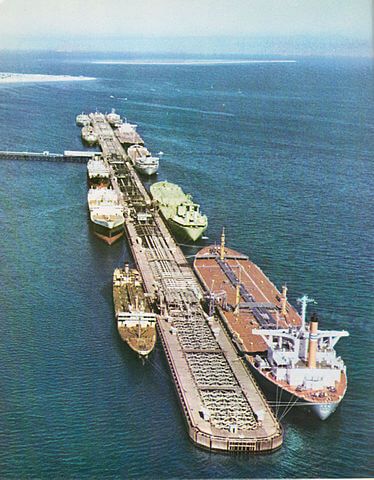 Everything you need to know about today’s coverage of Israel and the Mideast. Join the Israel Daily News Stream on Facebook.
Everything you need to know about today’s coverage of Israel and the Mideast. Join the Israel Daily News Stream on Facebook.
Today’s Top Stories
1. EU to begin formulating guidelines to label Israeli settlement products by year’s end, reports the Daily Telegraph. But Israeli officials estimate that 20,000 Palestinian families would lose their livelihood if the EU moves forward with this.
2. Now that Hezbollah’s blacklisted in Europe, Israel will begin sharing its intelligence on the group with the EU. The Jerusalem Post writes:
While up until now the intelligence was shared with EU decision-makers so they would finally agree to blacklist Hezbollah, now the focus will be on those bodies that need to enforce the decision.
3. For the first time, Israel’s Government Press Office is going to give press credentials to bloggers. HonestReporting’s Simon Plosker discussed the GPO’s extreme criteria on Amir Mizroch’s radio show, So Much to Say. Will any bloggers qualify? See also 5 Thoughts on Press Cards for Bloggers.
4. Whose Opinion Matters? Part 3: The LA Times: Anti-Israel bias is reflected in the Los Angeles Times’ editorial pages.
5. European Union to Ban Research Grants In the Name of Peace: The EU plans to ban any funding of Israeli institutions with a presence in the West Bank or eastern Jerusalem. Last year, grants were awarded to scientific organizations studying greenhouse gas emissions and other important issues. Would cutting of grants like these really further the cause of peace?
Israel and the Palestinians
• A US court of appeals ruled that Americans born in Jerusalem cannot list Israel as their country of birth. The JTA sums it up:
The request to list Israel “runs headlong into a carefully calibrated and longstanding Executive branch policy of neutrality toward Jerusalem,” the court ruled.
The case was brought on behalf of Menachem Zivotofsky, 11, who was born in Jerusalem in 2002 shortly after the law was passed . . .
Lawyers for Zivotofsky said they would appeal the ruling to the Supreme Court . . .
See Professor Eugene Kontorovich reaction at the Volokh Conspiracy.
• The Financial Times (click via Google News) picks up on Israel’s “virtual embassy” to the Persian Gulf states: this Twitter account.
“We decided [the virtual embassy] would be a very good tool to engage in a dialogue with people from the GCC,” said Yigal Palmor, a spokesman for the foreign ministry and one of those running the Twitter account . . .
“We want tweets from anyone in those countries who wants to engage with us in a dialogue on any subject matter, whether business, science, politics or society,” he said.
• CNN‘s Christiane Amanpour discussed peace efforts with Hanan Ashrawi.
• For more commentary/analysis, see Michael Singh, Frank Gaffney, Donald Macintyre, Howard LaFranchi, and staff-eds in the LA Times and Christian Science Monitor.
Arab Spring Winter
• Toronto Star columnist Olivia Ward assesses how Hezbollah got embroiled in Syria.
• According to the Daily Star, Persian Gulf states’ sanctions on Hezbollah will damage Lebanon more than The Party of God.
• Arab media reports say Mossad chief Tamir Pardo recently visited the UAE.
• Benjamin Weinthal and Claudia Rosett (Foreign Policy) wonder why the UN itself won’t designate Hezbollah as a terror group.
• A Wall St. Journal staff-ed (click via Google News) pans the EU’s distinction between Hezbollah’s bad armed wing and good political wing. Also worth reading was Der Spiegel, Avi Issacharoff, and a NY Daily News staff-ed.
Rest O’ the Roundup

• The US plans to bring Iran oil exports to zero. But the Jerusalem Post notes that Iran may have a nuclear bomb before the tightened sanctions take effect:
After a year, exemptions granted to countries such as China, Japan, Turkey and South Korea – which continue to import Iranian oil – will no longer be granted. Companies in those countries doing business with Iran previously given a pass will be cut off from the US economy. . .
While the sanctions will be harsh if and when executed, the timeline for their full implementation – a year from passage, likely in September or October – grants the Iranians another year or more to acquire nuclear weapons capability.
As one source close to the drafting of the bill conceded: If Iran chooses to press full speed ahead on uranium enrichment, no sanctions bill can stop it.
• Professor Stephen Walt‘s against linking Iranian diplomacy with Mideast efforts. “Settlements for Iran” may be a tempting offer, but it’ll just tangle up both tracks.
• Hussein Aboubakr’s a must read: The Holy Anti-Semitic Month of Ramadan
As far as I remember from the early days of my childhood, not one Ramadan season missed the opportunity to introduce some major anti-Jewish documentary or TV series. The biggest hit Ramadan specials in Egypt are usually programs that offer a large dose of anti-Semitism to the Arab appetite.
• The Ministry of Foreign Affairs’ work sanctions are effecting aliyah, reports the JTA.
• Israel and India are negotiating a free trade agreement.
(Image of photographer via Flickr/Manin the Moon)
For more, see yesterday’s Israel Daily News Stream.
[sc:bottomsignup]

